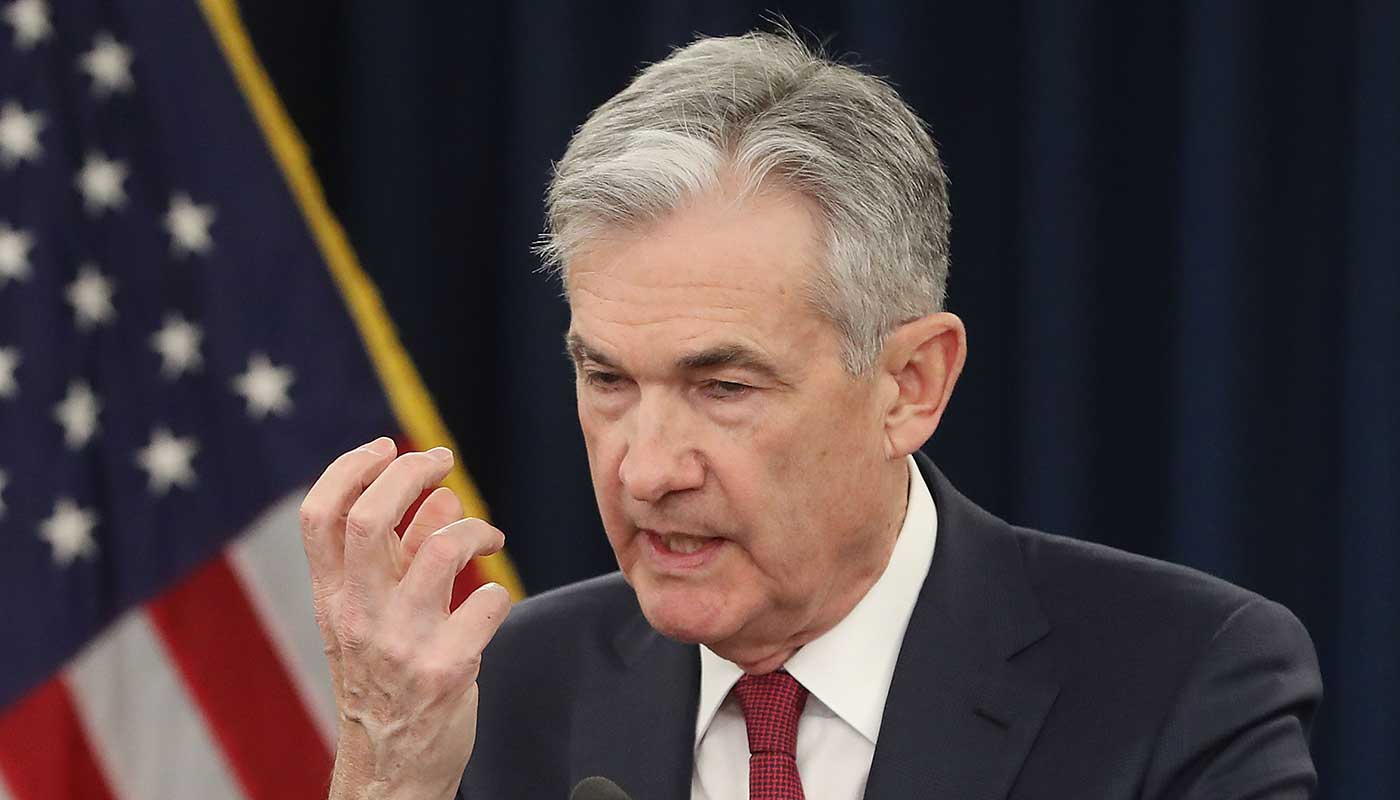How bad could the bear market get?
There’s a whiff of panic in the air – and not just in stock markets

A free daily email with the biggest news stories of the day – and the best features from TheWeek.com
You are now subscribed
Your newsletter sign-up was successful
“It’s getting ugly out there,” said Ben Wright on Telegraph.co.uk. “Wall Street collapsed into a bear market on Monday” – and fell further the following day, “amid fears that sharply rising interest rates will tip the world’s biggest economy into a recession”. Stock markets duly swooned across the world. The rout was triggered by figures showing that US consumer prices had jumped 8.6% from a year ago in May, said Hudson Lockett in the FT. This stoked expectations that the US Federal Reserve could implement “an extra-large rate rise of 0.75 percentage points” at this week’s monetary policy committee – and may follow up with another in July. Growing anticipation of sharper rate rises also caused prices of government bonds to lurch downwards.
Fed chairman Jerome Powell “prizes predictability”, said The Economist. The idea is to give investors “ample guidance” to prepare them for policy changes. “But the past few days have been a whirlwind.” Suddenly, “the table has been slanted in a more hawkish direction”, with Powell contemplating “the biggest single rise” since 1994. “History suggests that rapid monetary tightening often precedes a recession. But the Fed knows that runaway inflation would be worse.” There’s no longer any excuse for failing to act, agreed DealBook in The New York Times. “Supply chain problems have eased”, yet prices have nonetheless continued to rise because of “continued intense demand for goods and services”. So far, “the Fed’s moves have not had much effect”. Indeed, some economists argue that the current 8.6% inflation figure may even underestimate the true situation.
The likelihood is “of a long, grinding market correction amid extempore monetary policymaking”, said Lex in the FT. No wonder “investors are rushing for safety”. People “quibble about definitions of a bear market”, said John Stepek on MoneyWeek.com, but with America’s benchmark S&P 500 index now down by 20% this year (and the tech-focused Nasdaq down by nearly a third), “no one’s querying that we’re in one now”. Still, “the scarier stuff is happening in bond markets”. The yield on ten-year US Treasury bonds (which moves inversely to the price) hit its highest level since 2018 – raising “some intriguing questions about the cost of borrowing for governments”. It’s worrying that “yield spreads in the eurozone are widening”: markets seem to be again “differentiating between the creditworthiness of countries” in the zone. That, of course, was the root of Europe’s sovereign debt crisis in the 2010s. No one is yet predicting a repeat. But it was telling that the European Central Bank convened an emergency meeting this week.
The Week
Escape your echo chamber. Get the facts behind the news, plus analysis from multiple perspectives.

Sign up for The Week's Free Newsletters
From our morning news briefing to a weekly Good News Newsletter, get the best of The Week delivered directly to your inbox.
From our morning news briefing to a weekly Good News Newsletter, get the best of The Week delivered directly to your inbox.
A free daily email with the biggest news stories of the day – and the best features from TheWeek.com
-
 6 of the world’s most accessible destinations
6 of the world’s most accessible destinationsThe Week Recommends Experience all of Berlin, Singapore and Sydney
-
 How the FCC’s ‘equal time’ rule works
How the FCC’s ‘equal time’ rule worksIn the Spotlight The law is at the heart of the Colbert-CBS conflict
-
 What is the endgame in the DHS shutdown?
What is the endgame in the DHS shutdown?Today’s Big Question Democrats want to rein in ICE’s immigration crackdown
-
 Currencies: Why Trump wants a weak dollar
Currencies: Why Trump wants a weak dollarFeature The dollar has fallen 12% since Trump took office
-
 Elon Musk’s starry mega-merger
Elon Musk’s starry mega-mergerTalking Point SpaceX founder is promising investors a rocket trip to the future – and a sprawling conglomerate to boot
-
 TikTok: New owners, same risks
TikTok: New owners, same risksFeature What are Larry Ellison’s plans for TikTok US?
-
 Will SpaceX, OpenAI and Anthropic make 2026 the year of mega tech listings?
Will SpaceX, OpenAI and Anthropic make 2026 the year of mega tech listings?In Depth SpaceX float may come as soon as this year, and would be the largest IPO in history
-
 Leadership: A conspicuous silence from CEOs
Leadership: A conspicuous silence from CEOsFeature CEOs were more vocal during Trump’s first term
-
 Ryanair/SpaceX: could Musk really buy the airline?
Ryanair/SpaceX: could Musk really buy the airline?Talking Point Irish budget carrier has become embroiled in unlikely feud with the world’s wealthiest man
-
 Powell: The Fed’s last hope?
Powell: The Fed’s last hope?Feature Federal Reserve Chairman Jerome Powell fights back against President Trump's claims
-
 Did markets’ ‘Sell America’ trade force Trump to TACO on Greenland?
Did markets’ ‘Sell America’ trade force Trump to TACO on Greenland?Today’s Big Question Investors navigate a suddenly uncertain global economy